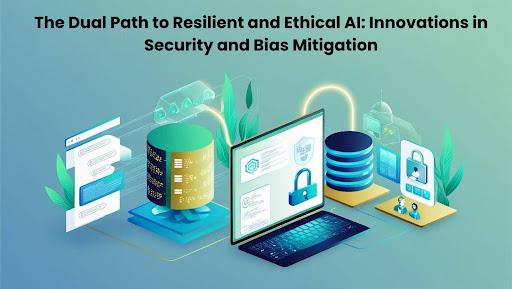Ethical Considerations in AI-driven Learning: Safeguarding Privacy, Equity, and trust
Artificial Intelligence (AI) is revolutionizing the educational landscape, making learning more personalized, efficient, and accessible. However, as AI-driven learning solutions gain traction, concerns around ethical considerations—especially those involving privacy, equity, and trust—are at the forefront of discussions. This article explores the critical ethical dilemmas and solutions that educators, institutions, developers, and learners must address to ensure a safe, inclusive, and trustworthy learning environment.
Understanding AI-Driven Learning
AI-driven learning encompasses a broad spectrum of educational technologies, from adaptive learning platforms and intelligent tutoring systems to predictive analytics that customize curricula based on individual needs. These systems promise improved outcomes but also pose unique challenges that warrant ethical attention, especially regarding how data is collected, processed, and utilized.
Benefits of AI-Driven Learning
- Personalized Education: AI analyzes student data to offer tailored learning paths and resources.
- Efficient Assessment: Automated grading and feedback systems save time and ensure consistency.
- Enhanced Accessibility: Adaptive technologies support learners with disabilities and language barriers.
- Data-Driven Insights: Educators gain valuable analytics to improve teaching strategies and curriculum design.
Key Ethical Considerations
Safeguarding Privacy in AI-driven Learning
with the increasing reliance on student data, safeguarding privacy in AI-driven learning is paramount.Sensitive information, such as academic history, personal details, and behavioral analytics, is frequently enough collected to power AI algorithms.
- Data Minimization: Limit data collection to only what is necessary for learning objectives.
- Consent and Transparency: Clearly inform learners of data usage policies and obtain explicit consent.
- Secure Storage and Transfer: Implement robust encryption standards and access controls to protect data.
- Regulatory Compliance: Adhere to privacy regulations such as GDPR, FERPA, and COPPA.
Educators and developers must be obvious with stakeholders about data handling practices and offer mechanisms for users to review or delete their personal information.
Promoting Equity in AI-Driven Education
AI has the potential to level the playing field in education but can inadvertently perpetuate existing inequities if not carefully designed and deployed.
- Bias Mitigation: Regularly audit algorithms for biases related to socio-economic status, race, or gender.
- Inclusive Data Sets: Use diverse datasets during advancement to prevent skewed outcomes.
- Accessibility: Ensure technologies are usable for students with disabilities and from marginalized communities.
- Cost and Connectivity: Address digital divides by considering affordability and internet access in platform deployment.
Educational institutions should strive to make AI-driven learning opportunities equally available and prevent unintended consequences such as algorithmic discrimination or unequal resource allocation.
Building Trust in the Age of AI-Driven Learning
Cultivating trust between learners, educators, and technology providers is essential for successful adoption of AI in education.
- Algorithmic Transparency: Explain how AI models make decisions affecting students’ learning journey.
- Human oversight: Ensure educators retain control and can intervene when necessary.
- Clear Accountability: Define responsibilities for errors or unintended outcomes from AI systems.
- Continuous Monitoring: Regularly review AI performance to detect and correct flaws early.
Students and parents are more likely to embrace AI-assisted learning when they are confident in the integrity and reliability of the technologies in use.
Case Studies: ethics in practice
case Study 1: Adaptive Learning Platforms in K-12 Education
A major school district implemented an adaptive learning platform that gathered extensive data to tailor lessons. Initially, the system improved personalized learning, but concerns arose over opaque data practices and parental consent. The district revised its approach, introducing clear opt-in procedures and parental dashboards, ultimately improving transparency and trust.
Case Study 2: AI-Powered College Admissions
Universities using AI for admissions faced criticism for perpetuating biases present in historical data—resulting in fewer admissions for underrepresented groups. By re-evaluating the data and adjusting algorithms, equity was improved and public confidence was restored in the admissions process.
Practical Tips for Navigating Ethical Considerations
- Assess Data Ecosystem: Conduct regular data privacy audits and risk assessments.
- Engage Stakeholders: Involve students,teachers,and parents in ethical decision-making.
- develop Ethical Guidelines: Establish clear policies for AI usage in educational institutions.
- Foster Digital Literacy: educate all parties about both the potential and the risks of AI-driven learning tools.
- Collaborate with Experts: Work with legal, technical, and ethical professionals to ensure best practices are followed.
First-Hand Experience: Educator Perspective
“My students love the personalized feedback they get from our AI-driven math platform,but some parents expressed concerns about data security. Open discussions and sharing our data protection policies helped build trust. we’re also working with developers to ensure the system remains unbiased and supports students from all backgrounds,” says Ms. Parker, a middle school teacher in ohio.
challenges and Opportunities Ahead
While AI-driven learning offers unprecedented opportunities for educational innovation, ongoing vigilance is necessary:
- Dynamic Challenges: As technology evolves, new ethical dilemmas will arise—requiring versatility and adaptive frameworks.
- Global Impact: Educational ethics standards must account for diverse cultural, legal, and socio-economic contexts.
- Lasting Development: Focus on long-term goals, such as digital citizenship, lifelong learning, and ethical AI literacy for all users.
Conclusion: Safeguarding the Future of AI-Driven Learning
AI-driven learning has the power to transform education, offering students customized, engaging, and accessible experiences. However, as we integrate these technologies, ethical considerations—especially around privacy, equity, and trust—must be at the heart of every decision. By prioritizing transparent practices, inclusive design, and active engagement with all stakeholders, we can safeguard learning environments and harness the benefits of AI responsibly.Educational leaders, policymakers, developers, and communities alike share the obligation to keep ethics in focus as we shape the future of learning.
Whether you’re an educator, student, or parent, understanding and advocating for ethical standards in AI-driven education ensures a brighter, fairer, and safer future for all learners.

